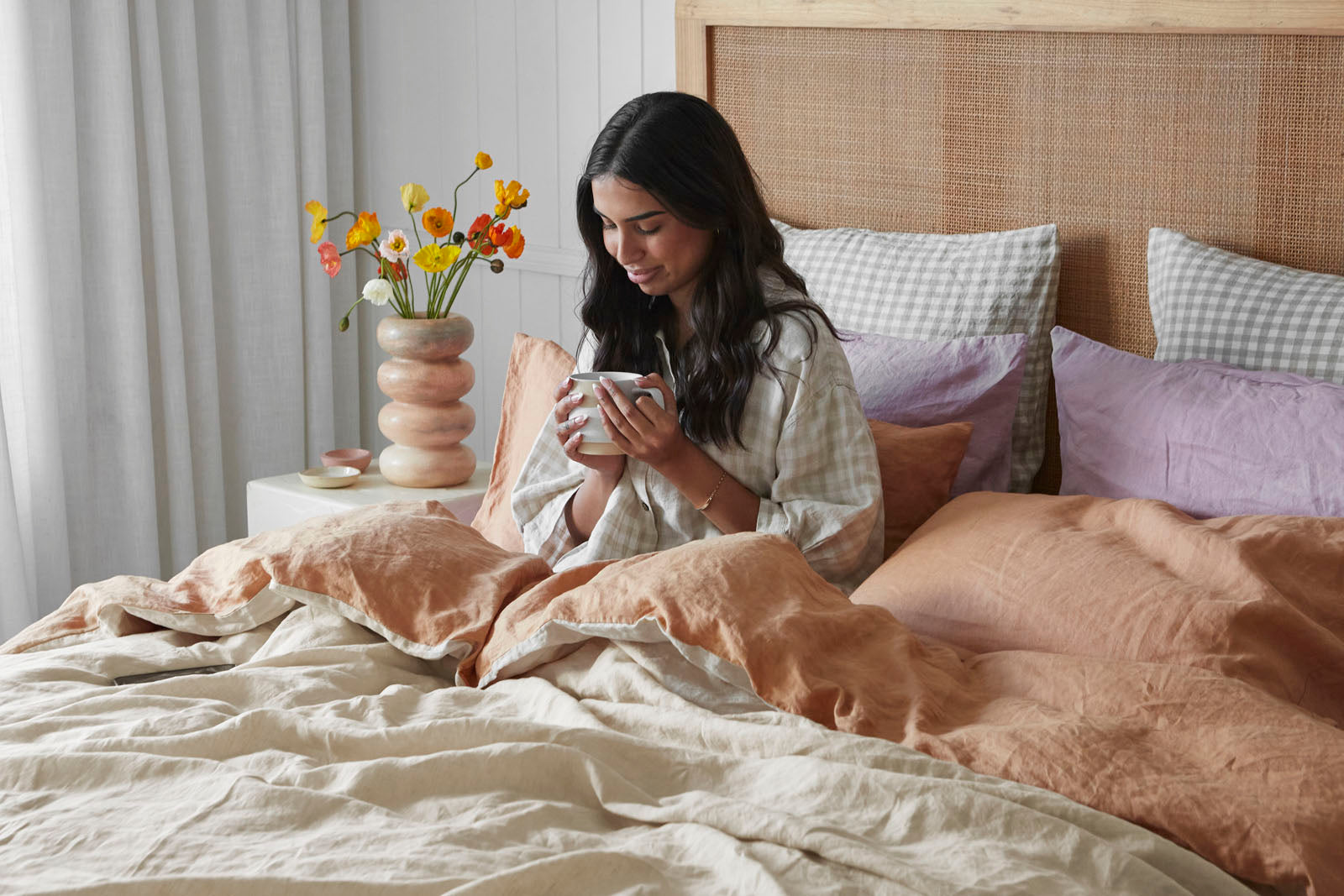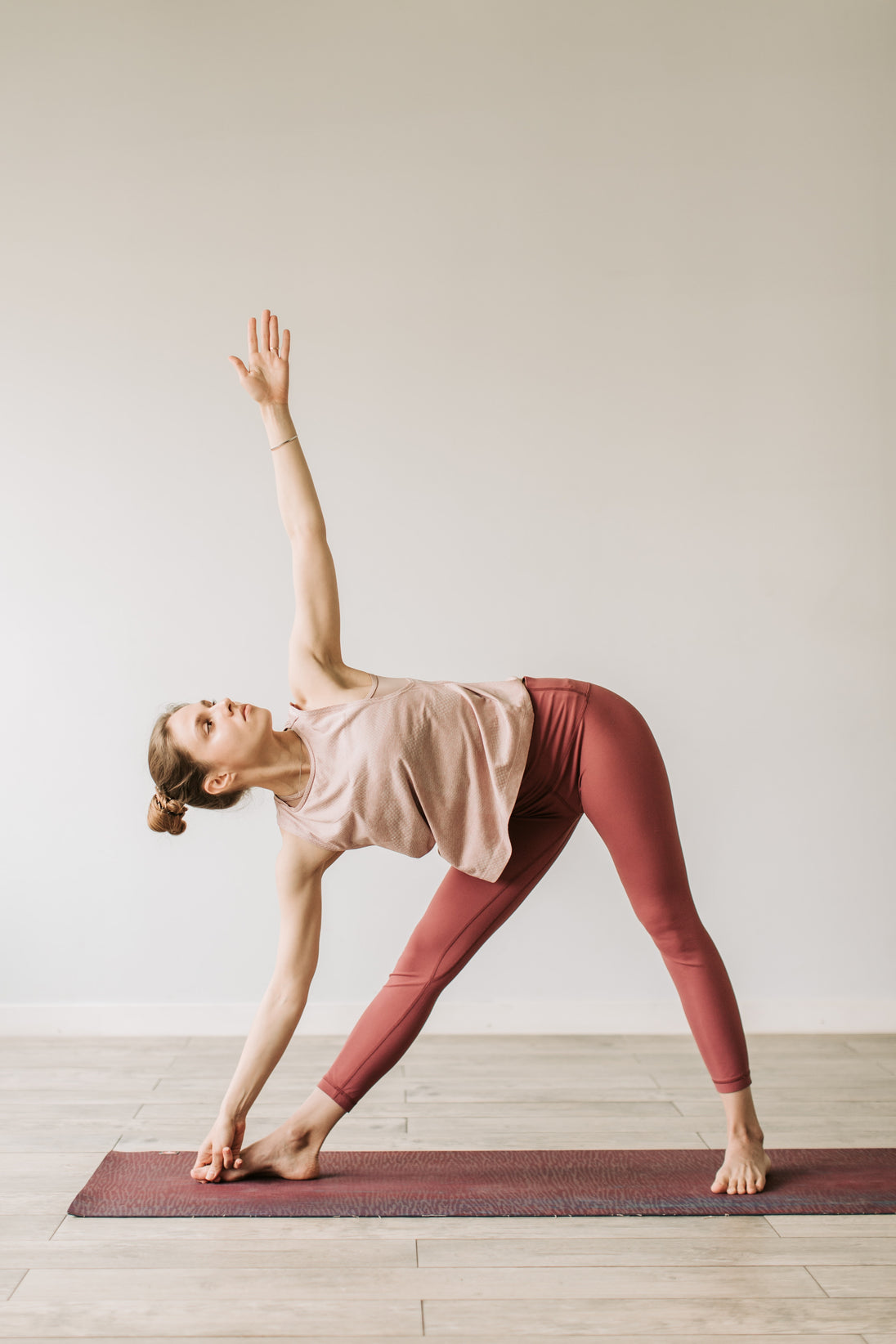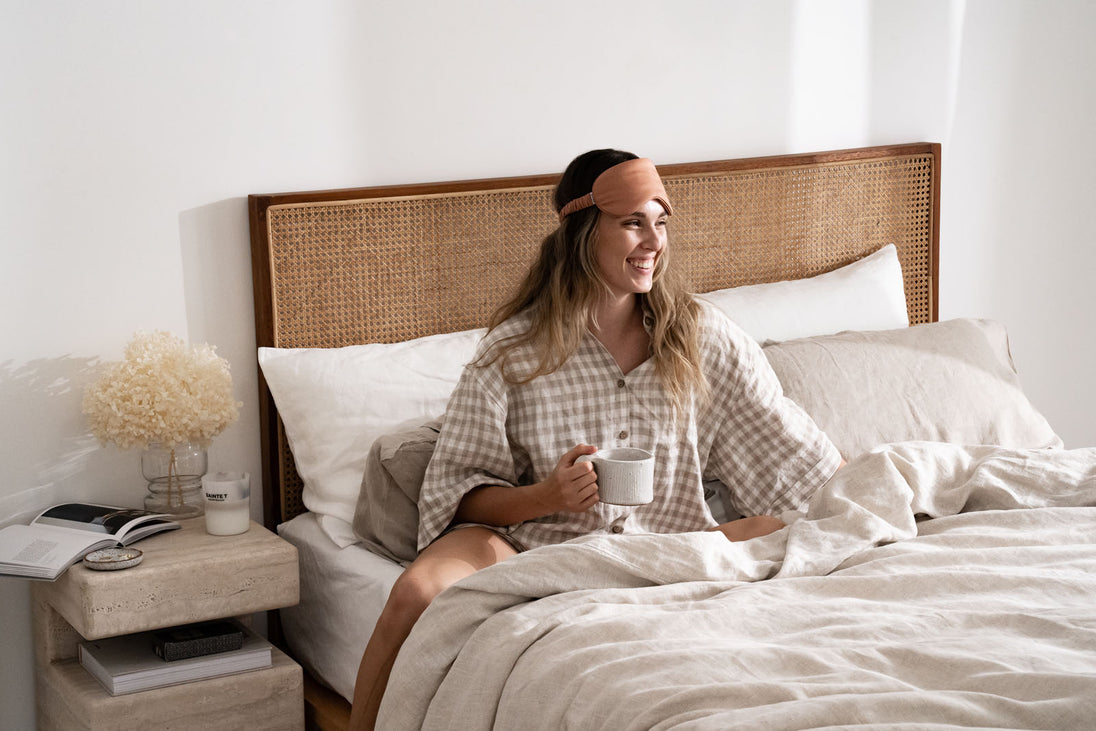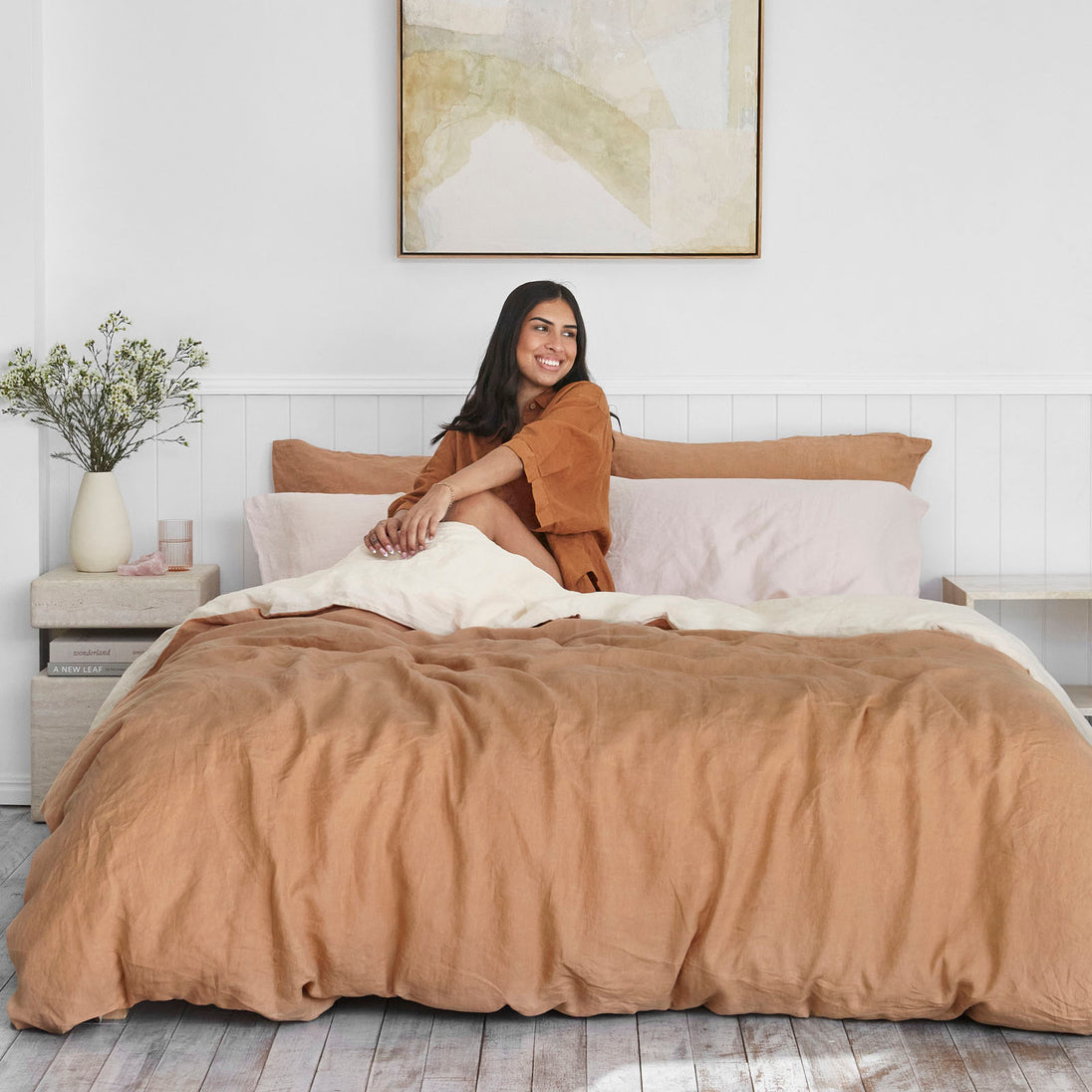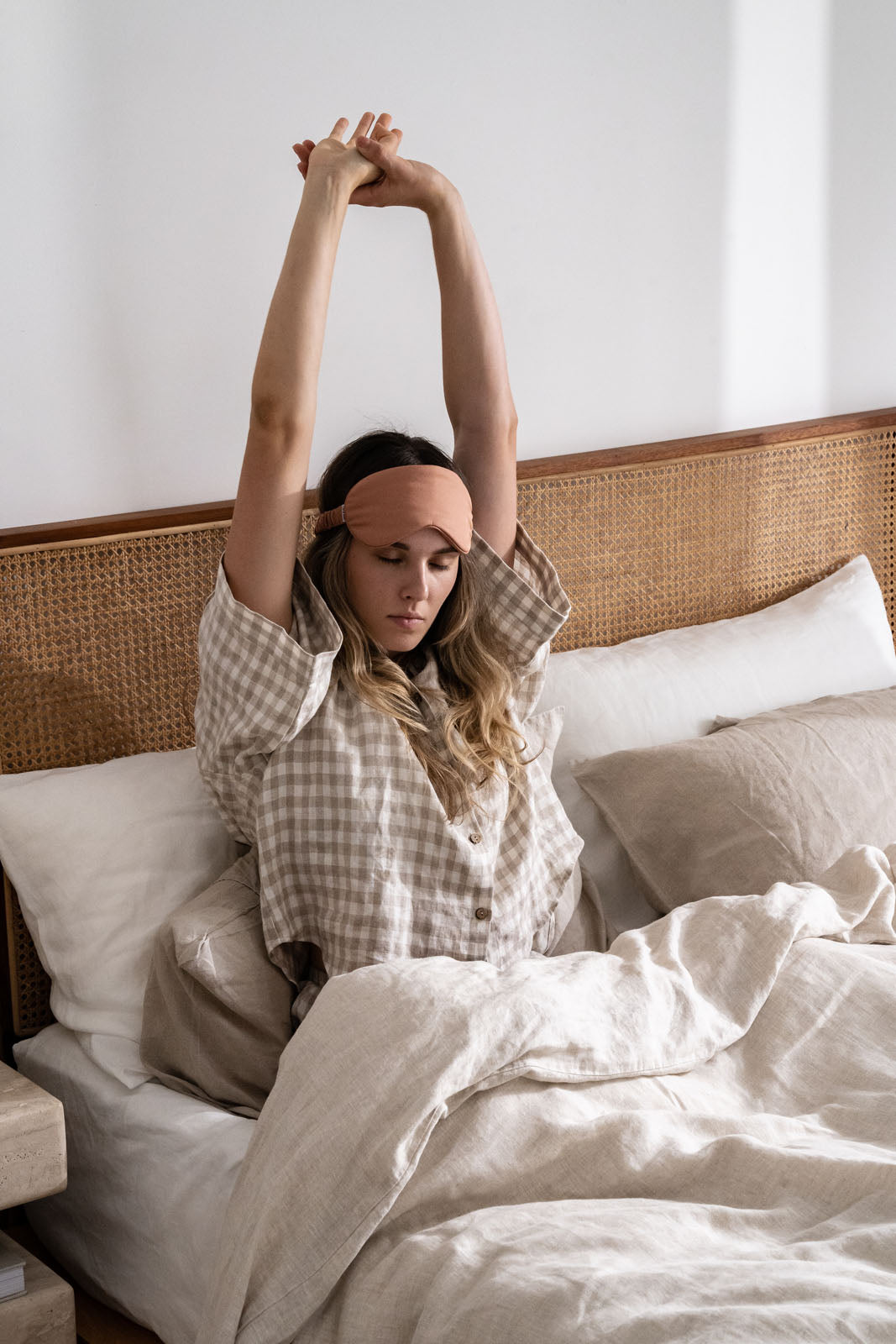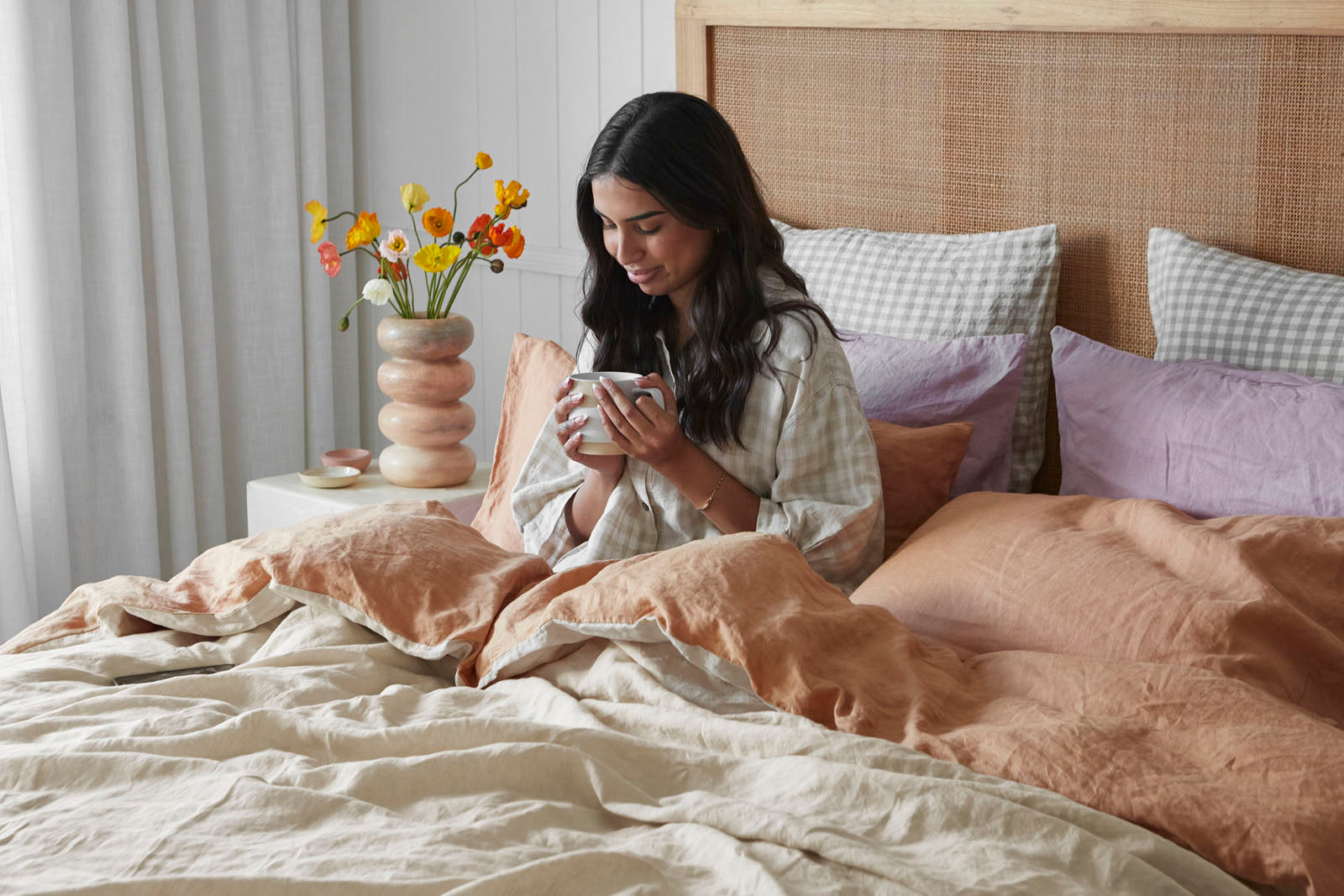
How to Improve Your Sleep & Your Life
Posted: 20 June 2023
We understand the importance of getting a good night's sleep and curating a product range to help you achieve that. Through various strategies and simple lifestyle changes, we will guide you towards enhancing the quality of your rest, so you can experience the rejuvenating benefits of a better night's sleep.
We appreciate that the go-go-go fast-paced dynamics of everyday life can severely disrupt our sacred sleep schedules and result in a whole lot less sleep than we were aiming for. A healthy sleep routine contributes to so many areas of our life, including mood regulation, immune function, and cognitive performance. When poor sleep creeps in, it isn't only your energy levels that dwindle; it can also significantly impact your long-term health.
We will help set you up with various strategies to help enhance the quality of your rest and touch on how to improve sleep through simple yet effective lifestyle changes. Let's begin our journey towards a more rejuvenated night's sleep (and all of the benefits that come with it!).

How exercise improves sleep
Regular physical exercise is an essential ingredient when it comes to the recipe for sweet dreams. By incorporating exercise into your daily routine, you can help improve your sleep quality and have an easier time falling asleep.
We have good news for you, the best exercise for a better night's sleep is any exercise you enjoy and can easily maintain as a regular part of your busy schedule. So whether you are drawn to aerobic exercise, long walks, yoga, pilates or strength training, it doesn't matter; as long as it wears you out and gets your heart rate up, your sleep schedule will reap the rewards!
It also doesn't matter which time you choose to work out; always remember to allow time to wind down between working out and bedtime, though, to ensure your body has time to prepare for sleep.
Which diets improve sleep?
Diet plays a fairly vital role in determining the quality of your sleep. Just as food and drinks are fuel for our bodies, what we consume can also either increase or decrease our chances of a good night's sleep.

Does keto improve sleep?
You may have heard about the ketogenic or keto diet, a high-fat, low-carb diet. Some people have suggested that the keto diet can aid in sleep health. However, the jury is still out on this one. While some people have indeed reported improved sleep due to the keto diet, others have experienced worse sleep and restlessness, especially during the earlier stages of the diet. The impact of the keto diet on sleep appears to be somewhat subjective, so we wouldn't recommend making any drastic changes to your diet in the name of a decent rest, at least without consulting a healthcare professional first.
Diets aside, some specific goods can potentially enhance your sleep quality. Foods rich in tryptophan, an amino acid that contributes to the production of serotonin and melatonin, can help promote a better night's sleep. Some foods in this category include turkey, eggs, cheese, fish, and nuts. Foods rich in magnesium can also increase your chances of good sleep, including pumpkin seeds, spinach, and dark chocolate.
Pictured are our French Flax Linen Grey Stripe Napkins and Milk Tablecloth
Timing and portion sizes of your meals can greatly impact your sleep. For example, eating large meals close to the time you go to bed can lead to discomfort and indigestion, making it more difficult for your body to fall asleep. The best practice is to finish eating 2-3 hours before you plan to go to bed, and where possible, keep your evening meals on the lighter side.
Certain supplements can also help to support better sleep. Melatonin can be beneficial for those experiencing jet lag or sleep disruptions due to shift work. Other supplements like valerian root, magnesium, and lavender have also been proven to help support sleep health.
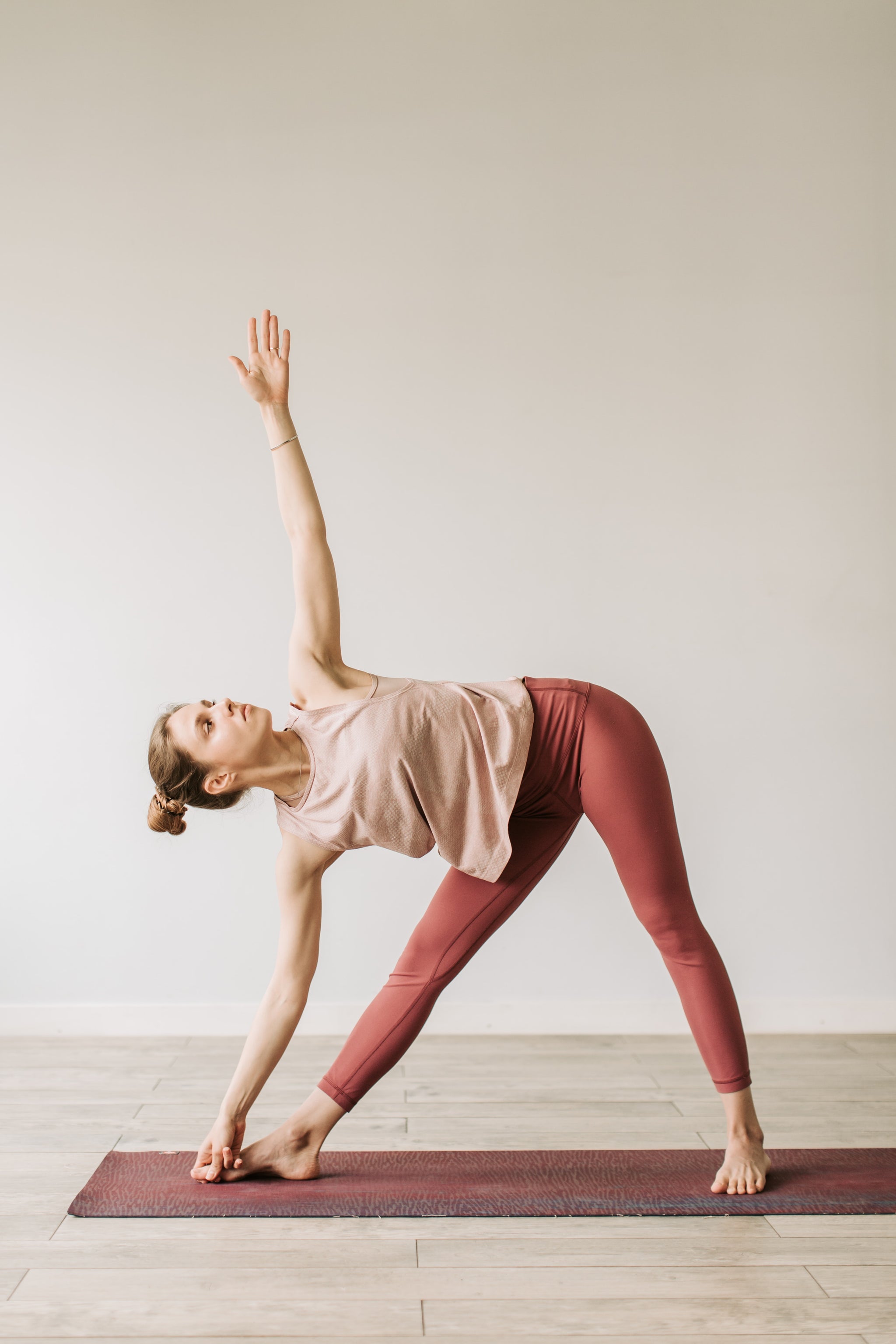
Meditation and Yoga for Better Sleep
Mind-body techniques have been known to improve sleep quality dramatically. By helping you to relax before bedtime, these practices can help your body enter a state of relaxation, making it far easier for you to fall asleep.
Does yoga improve sleep?
Yoga combines gentle physical movements with controlled breathing and meditation; this can both tire your body and quiet your mind in preparation for sleep. Several yoga poses, in particular, are known to bring on relaxation and reduce tension, making them an ideal addition to your evening routine. These include the child's pose (Balasana), legs-up-the-wall pose (Viparita Karani), and corpse pose (Savasana).
Pictured below is our Double Sided Quilt Cover in Crème and Sandalwood styled with Lilac Fitted Sheet and Beige Gingham Pillowcases
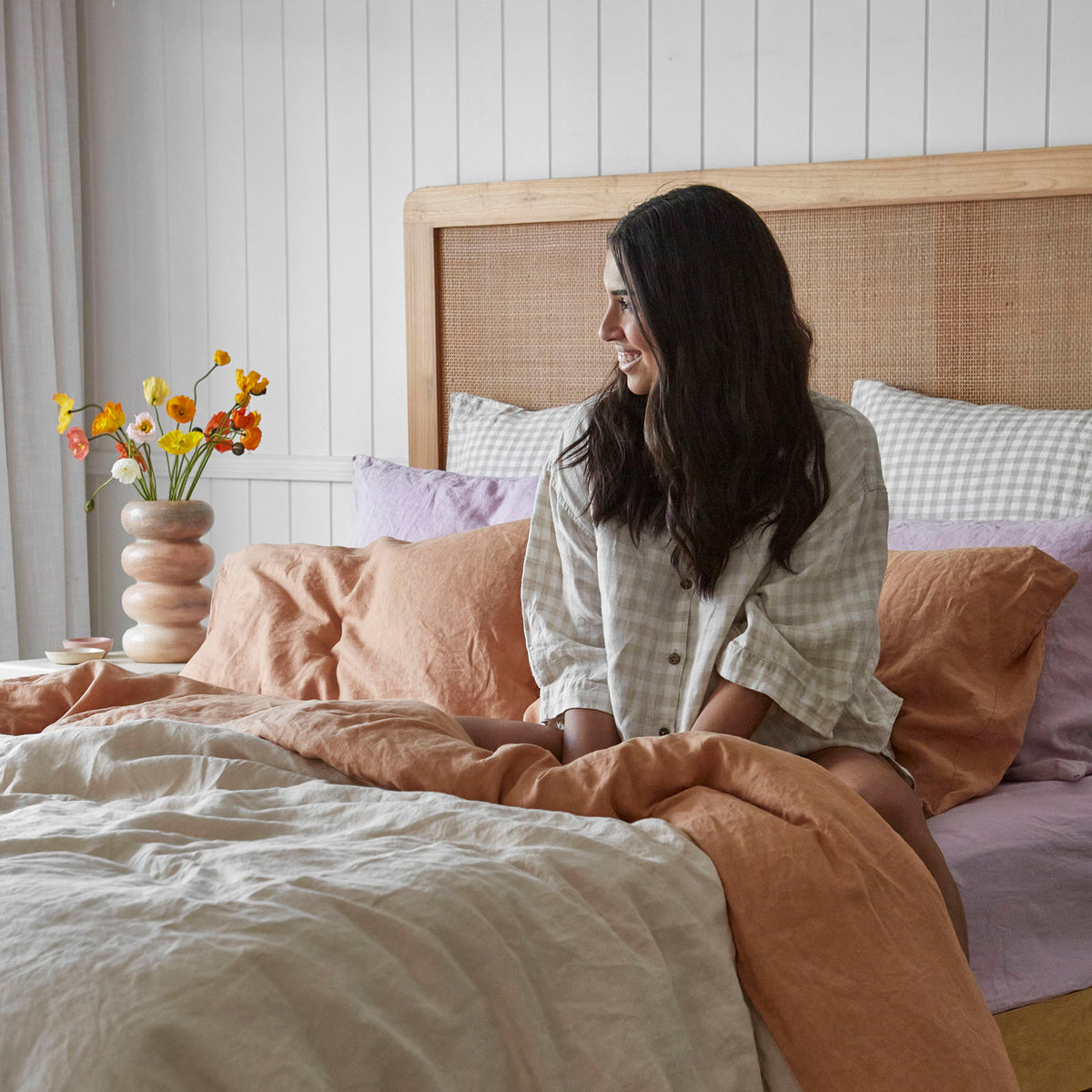
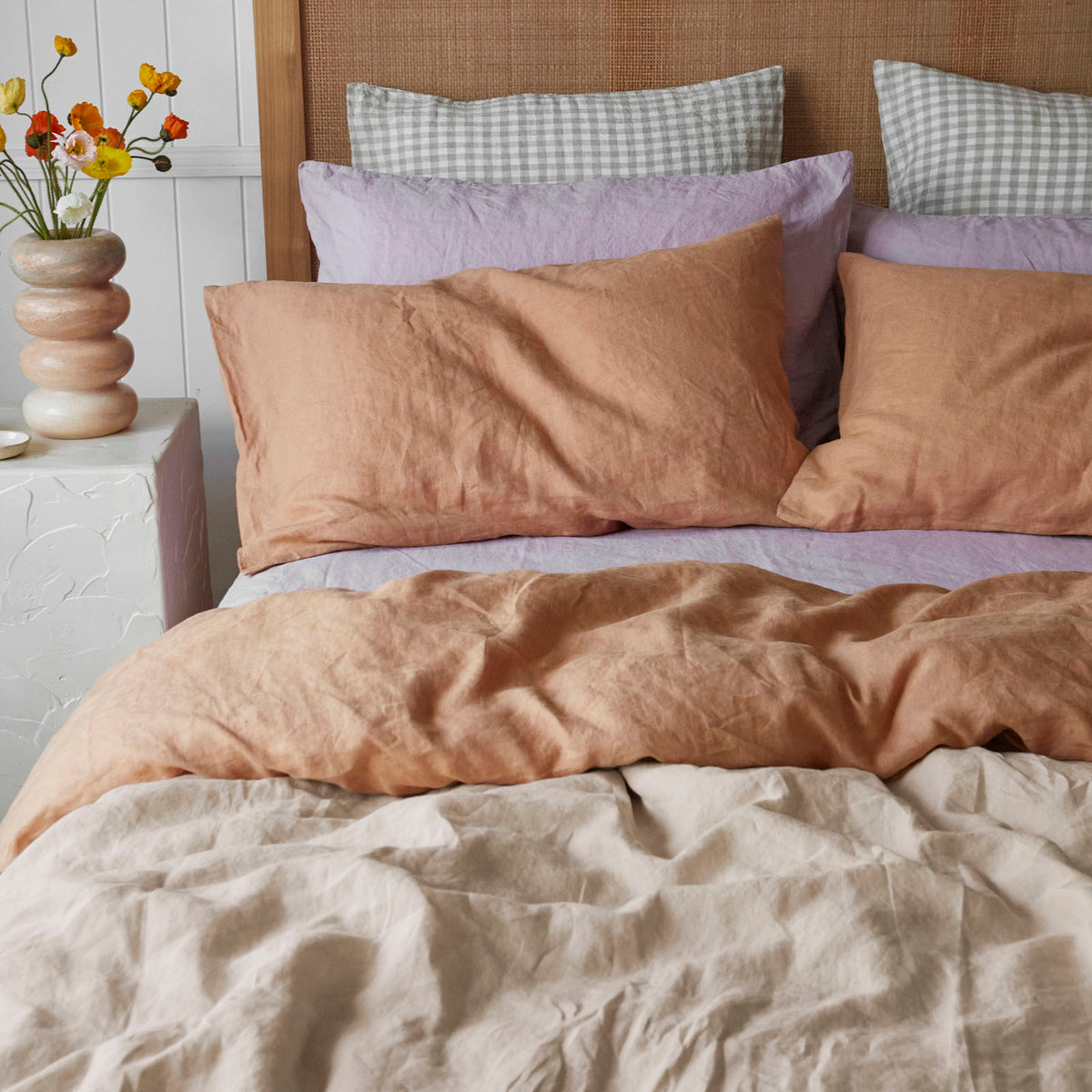
Does meditation improve sleep?
Meditation is a technique where you can train your attention and awareness to achieve a more emotionally calm and regulated state. By participating in regular meditation, you can begin to have more control over your thoughts, reducing intrusive thoughts that may disrupt your sleep or prevent you from falling asleep. Incorporating meditation into your routine can lead to improved sleep overall.
Remember, you don't have to start with a full yoga or 30-minute meditation session; just incorporating ten minutes into your nightly routine can make a significant difference and help you build a habit that you can grow upon as you stick with it. Plenty of online resources also help you with guided yoga or meditation.
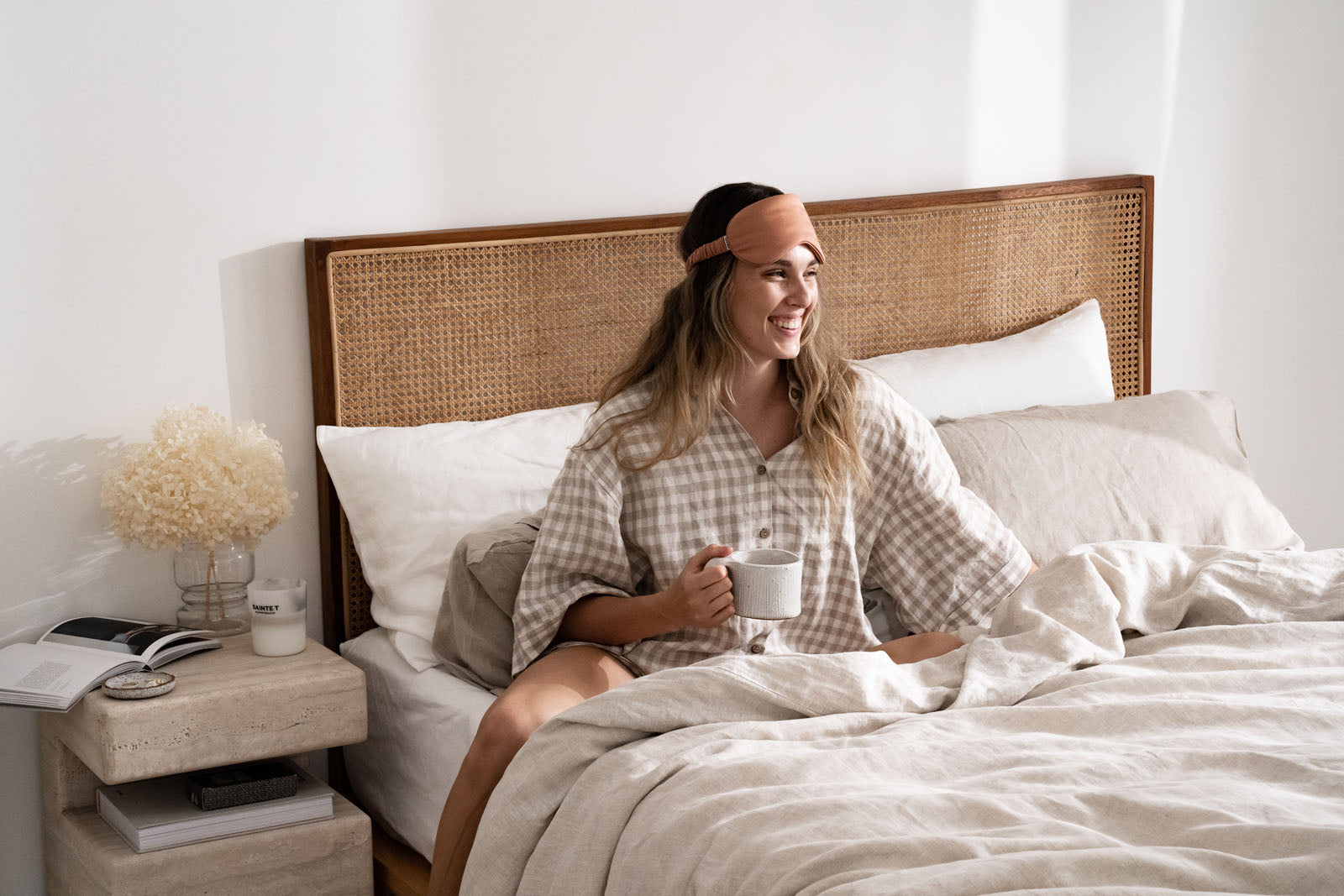
Sleep environment and its impact on your sleep
The environment in which you lay your head to rest plays a huge role in the quality of your sleep. Factors like light, noise, and temperature can all have an impact on your zzzs, but one often overlooked component is your bedding, specifically your sheets.
In the look is our French Flax Linen Ruby Set in Beige Gingham, Sheet Set in White and Quilt Cover Set in Natural
Does a quality sheet improve sleep?
Long story short, yes. High-quality sheets can significantly improve sleep by providing a soft, breathable, and comfortable surface to rest on after a long day. Sheets that irritate the skin or trap heat can disrupt your sleep cycle (non-natural materials like polyester, for example), causing you to wake frequently and feel less rested in the morning. On the other hand, a quality sheet that's gentle on the skin and maintains an optimal temperature will allow for a more comfortable and consistent sleep experience.
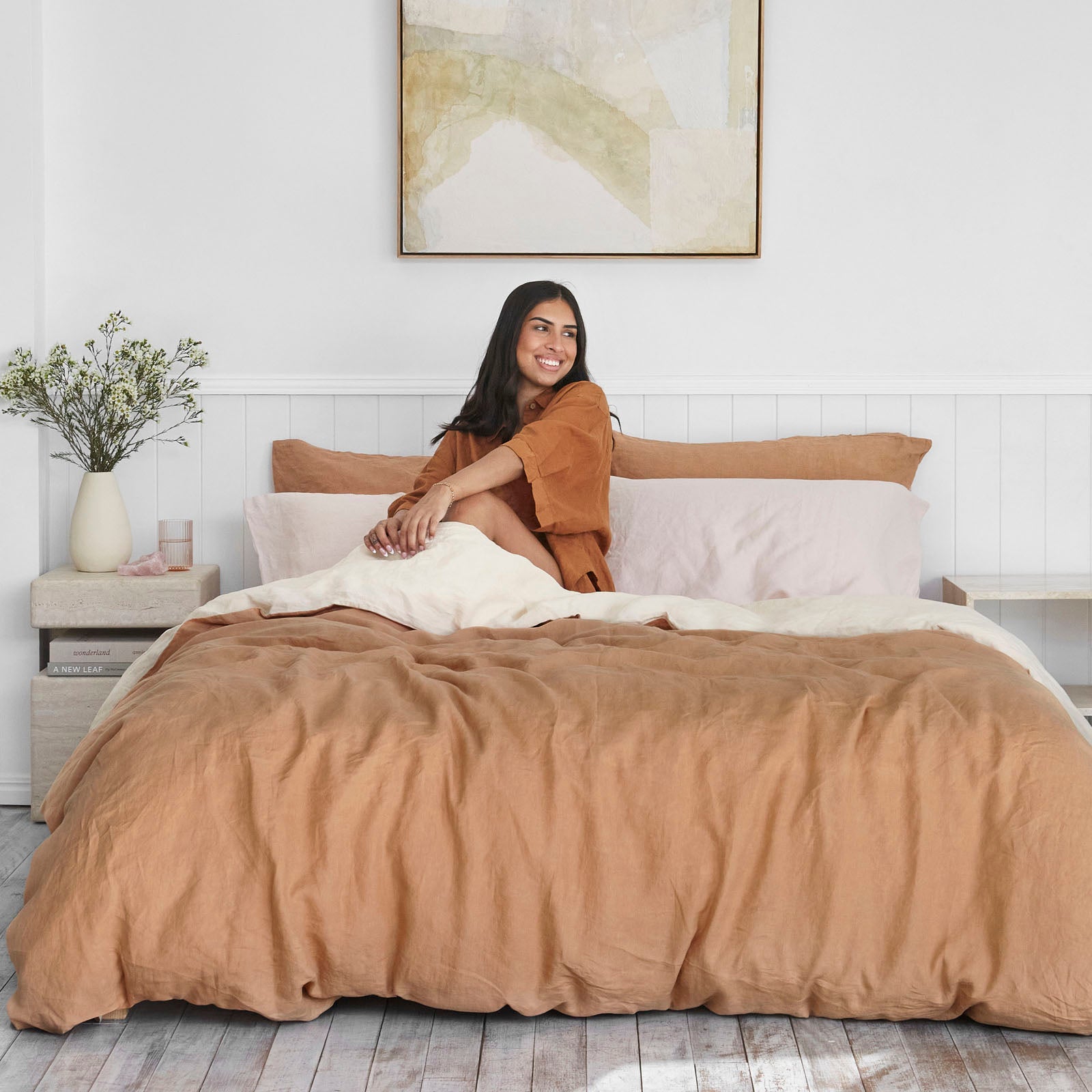
The impact of quality sheets on sleep
Quality sheets, like those made of premium French Flax linen, provide a plush and luxurious feel, aiding in relaxation. They can wick away moisture and regulate body temperature, preventing overheating, which is often a major sleep disruptor. Investing in quality sheets is worthwhile for those aiming to improve sleep.
So, what sheets are the best to sleep in? The best sheets for sleeping are those that align with your personal comfort preferences and sleep habits. Think of your sleep like a diet; it's about finding a sustainable routine for your lifestyle. However, with that being said, many sleep experts and enthusiasts alike swear by French Flax linen sheets for their incomparable softness, breathability, and durability. Linen bedding in general not only offers a great tactile experience but also elevates the overall aesthetics of your sleep environment, creating a more inviting place to rest. (Trust us, that matters!).
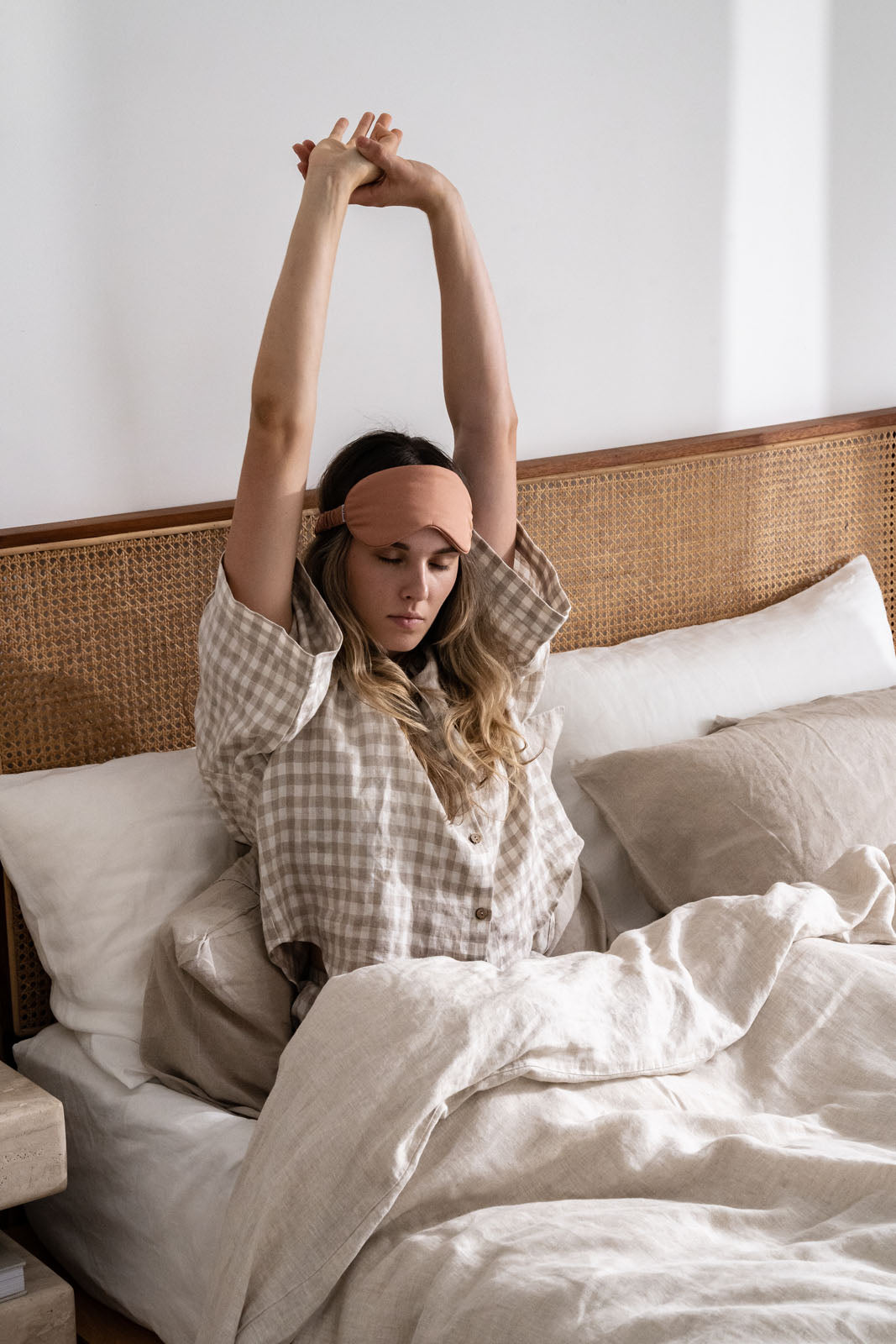
If you are looking to improve your sleep, it's essential to establish a regular sleep schedule, create a restful environment, and invest in quality sheets (no bias here). On top of this, incorporating physical activities like yoga and exercising can also help, as exercise improves sleep by reducing stress and helping you feel more tired by the time you hit the hay. Mindful practices like meditation are also a welcomed addition. When it comes to diet, consider eating foods rich in sleep-enhancing nutrients like kiwis and zinc, or speak to a health expert before adopting dietary lifestyles like keto, which some studies suggest can improve sleep. Some diets work well for some people and not others, and we recommend finding out what works for you and your body rather than following diet trends.
To wrap this up, prioritising sleep is crucial for overall health and well-being. Good sleep can boost your mood, productivity, and general quality of life. While the journey to better sleep might involve a series of trials and errors, finding what works best for you can be a life-changing experience. On that note, sweet dreams to our I Love Linen customers, and we hope this article has pointed you toward a deeper and more restful night's sleep.
Some questions about sleep you may have thought of
